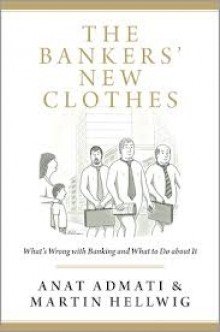Public discussion of financial regulation is a bit like the discussion of nuclear power safety. Everyone acknowledges the importance of prudence but few are conversant with the technical details. The challenge is complicated by the jargon in which the subject is steeped. Financial regulators slip into sentences laced with an alphabet soup of terms that only a rule-making nerd can navigate – to wit: Basel III, GSifi, FSB, FSOC, FPC, PRA, FCA, not to mention LTV and RWA. Lost in this lexicon, the layman despairs. Yet so important is this topic to the taxpayer that it behooves us to explain it in a way that even a failed bank director might grasp. So allow us the following metaphor.
Once upon a time, in a not so distant land, a people prospered on a rapidly expanding supply of fuel. Every day, heavily laden tanker trucks sped through the streets to deliver their product. The more the economy grew, the more demand rose for deliveries. The handful of fuel companies responded. They marshaled more vehicles and hired more drivers – however inexperienced or poorly supervised. To reduce down time, maintenance schedules were loosened. To reward efficiency, bonuses were offered for each delivery achieved. Drivers drove faster, completing more round trips per day than ever before. Speed limits were violated but the police looked the other way. After all, fuel was good for growth. And when town mayors expressed concern, the fuel companies convinced them not to worry – for as they explained: “there had been no major accidents; the drivers were expert and the companies’ control systems were ‘state of the art.’ In fact, for the good of the economy speed limits should be raised not lowered!” To show their gratitude, campaign donations would flow to those leaders who helped. Speed limits were duly raised. By 2007 the rules of the road permitted the fuel bearing behemoths to barrel through urban areas at 110 mph.
Then, a series of catastrophic accidents occurred. Tragically, towns went up in flames; innocent victims were left homeless. Taxpayer funds poured in to repair the damage. The public outcry was shrill. Penalties were levied. Hearings were held. Independent commissions were established. Three recommendations were made: 1) speed limits should be lowered to 25 mph in urban areas; 2) driver pay should be less dependent on short term deliveries; and 3) the governance and culture of the fuel companies should be overhauled. The fuel companies fought back. “Fuel,” they declared,” was vital to the economy. Crack down on the companies and economic growth would suffer. Rebuilding would be delayed.” (And donations would cease).
A compromise was reached. Driver bonuses would be deferred but their fixed salaries raised. Corporate Governance “guidelines” were introduced. And speed limits were lowered in urban areas – to 75 mph for the smallest trucks and 60 for biggest. Campaign donations resumed.
Now to understand the key challenge facing financial regulation simply substitute “bank leverage limit” for “speed limit” and you will be expert on the subject.
Oh, we almost forgot to add the ending to the parable: “And everyone lived happily ever after – until the next crisis.”
Anat Admati is the George C. Parker Professor of Finance at the Graduate School of Business, Stanford and the author of the recently released book “The Bankers New Clothes: What is Wrong with Banking and What to Do about It.” Robert Jenkins is an external member of the Financial Policy Committee of the Bank of England and Adjunct Professor at the London Business School. He writes in a private capacity.







